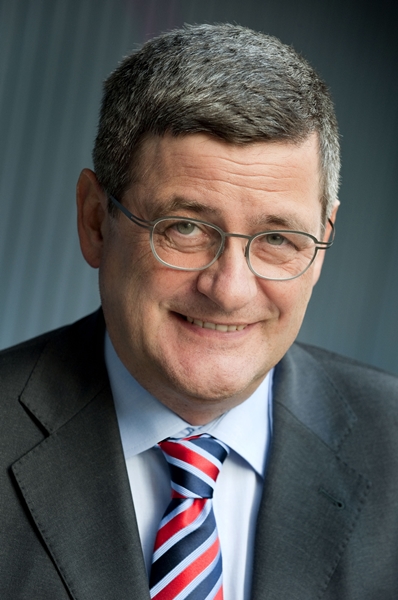Roland Tichy, editor-in-chief of Wirtschaftswoche, about the values of small to mid-sized businesses in Germany
A friend from India recently paid me a visit. He’s planning to collect old computers, laptops, and television sets in India. They will be shipped to Germany and will then make their way up the Rhine and Main rivers to the tranquil town of Aschaffenburg. Once there, the tiny traces of an array of metals, including gold, silver, and others with mysterious names will be extracted and cleaned so that they can be channeled back into the production chain.
This is an unusual story. Electronic waste is far too often exported to developing countries, first and foremost Ghana. There, the plastic is burned-off on open fires, usually by children, to glean the precious metals inside. The toxic black fumes contaminate the earth, the air, and people’s lungs.
These are grim images – the developed world poisoning the developing world with the rejected trimmings of its prosperity. And now, the global flow of garbage is changing direction? From India to Germany? The reason is that a small company has found a way to clean and reclaim materials from electronic waste. The air in and around the factory is clean. There is no smoke, no dirt, nothing.
From needles to E-cars
The river of trash has been reversed thanks to the success of German innovators. We call them Mittelstand, an important word in Germany that is inadequately expressed by the soulless translation “small to mid-sized businesses”. The Mittelstand is made up of the kind of people who can pull together a global network from the most forgotten corners of the world. In the vast majority of cases, there’s no iconic figure of the magnitude of Steve Jobs at the helm. Most of these enterprises are fairly unspectacular.
A global empire in miniature
On the Swabian Alb, a barren, cold, and desolate plateau in Southern Germany, I visited the world’s largest manufacturer of sewing needles, a global empire in miniature with over 6,000 employees, hiding behind its inconspicuousness. No other company produces such fine and sturdy needles, a product for which there is a gigantic market.
Not ones to rest on their laurels, they recently began sewing large nets out of strips of fabric which are then encased in concrete. Only recently, the first bridge was constructed from such a net. It only required one third of the concrete and none of the tons of steel found in ordinary bridges. By the way, this lightweight and elegant sewn bridge leads to the house of the Stauffenberg family. This is the same noble family of that courageous colonel who lost his own life and saved the honor of many others when he tried to blow up Hitler in the Wolf’s Lair.
There are thousands of companies like this one. Enterprises which penetrate the finest branches of the world’s economy and occupy niches that cannot be seen with the naked eye. They include the innovators building the world’s smallest cameras, detecting hairline fractures in the concrete shells around nuclear reactors. Even simple things, such as tin cans, are not beyond improvement. Canisters will soon be created to hold every chemical in the world.
For a long time, I didn’t know that the electric car, which runs on 1,000 Volts, is only safe thanks to the special fuses quietly doing their mysterious work under the hood. Nor was I aware that the supermarket around the corner – probably the one in your neighborhood too – uses a quiet ventilator built in Hesse to cool its vegetables.
Global impact
The Mittelstand is inconspicuous, yet it has an impact across the entire globe with its combination of high-tech applications for the world’s minutiae and its international networks. These technologically oriented, small to mid-sized businesses create jobs for those who have been shown the door by the large corporations.
Actually, they do much more. In a society too big to comprehend, people long for something they can wrap their heads around, for a sense of ownership of their work, for dependability, for personal responsibility. People ascribe these values to the Mittelstand, and that’s why there is such a distinct attachment to it in our society.
It is the real force driving Germany’s economy.

